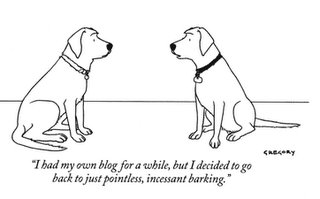Interesting article in BusinessWeek about how the growth of the internet has slowed to a crawl. In the US, 64% of households are connected to the internet. And that percentage is expected to increase to only 65% in the coming year. The explosive growth of the 1990s and early 2000s seems to have hit a wall.
Why? The article sites several factors.
- Setting up a computer and getting connected is just too complicated; many people don’t want the hassle.
- Some people (but not a whole lot) still live in areas where internet access isn’t possible or is difficult.
- People are afraid of it. They hear the stories about identity theft and rampant viruses, and don’t feel capable to figure out how to protect themselves. I resonate with that.
- They see the internet as unncessary. About 6 million peoplehave a computer, but not internet access, and say they won’t subscribe at any price.
- About 31% of non-users say they have internet access at work, and that’s sufficient for their needs.
- Then there’s the senior citizen segment. I know plenty of seniors who use the internet. But according to the article, 60% of people age 65 or older don’t use the internet at all. That surprised me.
There’s also a big segement of younger folk (under age 44) who view the internet as a time-waster, or just don’t want the hassle.
The article says computer and internet companies have failed to make things simpler. Instead, they keep adding new features which will appeal to the early adopters, and that just further intimidates nonusers. The “simpler” argument doesn’t work for me, since I set up a dozen Macs in the past six months. Take it out of the box, turn it on, the machine walks you through a few routine steps–and you’re ready to go.
At the same time, I’ve got a Dell laptop at work, which I use only so I can check to see how my websites look on a PC. That laptop drives me nuts with all the things that keep popping up. It’s hugely intrusive. For my PC readers: I know, there’s undoubtedly some setting I can turn off. But I’d rather just be able to gripe about PCs, if you don’t mind.
In my work, we are doing more and more on the internet, at the expense of print media. This is valid. We’re in survival mode, and we’re looking to the future of the church. But it’s good to know that 35% of our people probably aren’t connected, and it’ll be a number of years before that number drops even to 30%. Our demographics would skew more toward the “middle class” end of things, where you could expect to have more people connected. But we’re also a somewhat rural group, so we’d have plenty of people who only get dial-up, if anything (though in actuality, we’re more of a smalltown denomination, and small towns are connected for the most part).
Anyway, it gives me, as Communications Director, some things to consider.
 I’m torn. In the monster feud currently captivating The Big Apple, should I take the side of Donald Trump or of Rosie O’Donnell? Two fine, exemplary people of unmarred moral integrity. I just can’t choose. It’s like seeing Iraq and Iran go to war. Who do I root for?
I’m torn. In the monster feud currently captivating The Big Apple, should I take the side of Donald Trump or of Rosie O’Donnell? Two fine, exemplary people of unmarred moral integrity. I just can’t choose. It’s like seeing Iraq and Iran go to war. Who do I root for?





